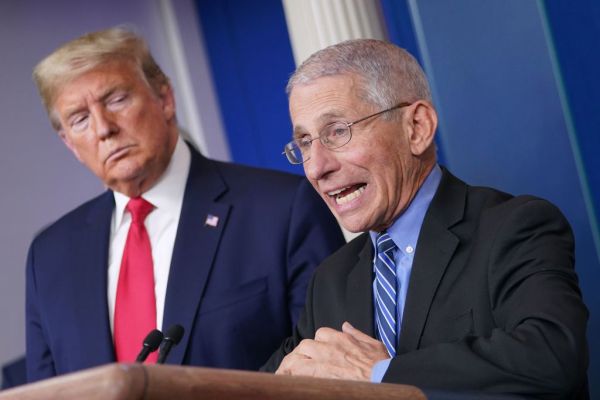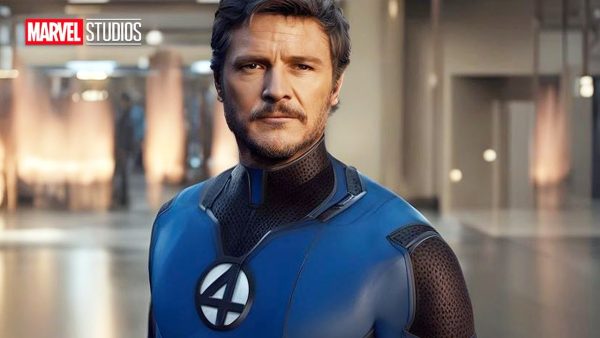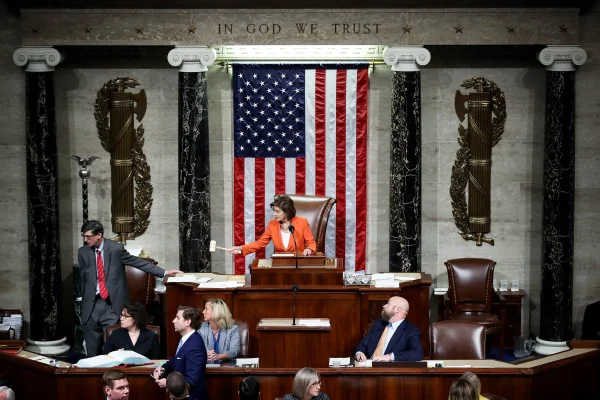Americans must listen to advice from medical experts

Dr. Anthony Fauci delivers a briefing on COVID-19 with President Donald Trump.
April 23, 2020
In times of uncertainty, people look up to leaders for guidance and protection. But as the coronavirus pandemic continues to grow, perhaps the public would be safer if they turned to unbiased medical experts instead of relying on government officials for information who may not be completely educated on the facts of COVID-19. Although all leaders have the public’s best interest in mind, politicians unfortunately are influenced by many other factors, such as the economy and unemployment, while medical experts care solely about safety and remain unaffected by other aspects, giving them the best authority on the mitigation of the virus.
Here in Arizona, Governor Doug Ducey has been criticized for prolonging his decision on giving stay at home orders until March 30 and waiting longer than other states to take preventive actions, such as closing schools. Though Ducey’s cautious approach is understandable for the continued betterment of the economy and education, the case could be made that actions should have been taken sooner considering neighboring California had been hit hard by the coronavirus. Situations such as these have been present all over the country. For instance, New York issued stay at home orders on March 23, but by that time there were over 33,000 cases in the U.S. As more states followed suit, it was evidently too late to defeat the virus before it spread exponentially. While it is futile to critique governments for their delayed responses to a largely unknown threat, it is clear that the public’s faith would be better entrusted to medical experts who have a fuller understanding of the virus and the way it spreads.
One of the most trusted experts of the crisis is immunologist Dr. Anthony Fauci who is a part of the White House’s coronavirus task force. From as early as January, Fauci and officials from government health administration repeatedly warned the White House about the dangers that coronavirus could pose. However, social distancing guidelines were not announced until March 16. All the while, health officials were warning President Donald Trump of the potentially devastating effects that could occur. Still, the matter was repeatedly ignored. Even as the situation worsened and severe lockdowns were implemented across the country, Trump expressed hope to reopen the country by Easter following an economic decline that erased much of the gradual growth seen in past months.
Logistically, this was not realistic in any way, which is exactly why it is imperative that people realize the only authoritative figures on this disease are medical experts who are educated specifically for this. Health officials such as Fauci, who have dealt with numerous pandemics such as AIDS and SARS, are more reliable sources. On the other hand, government officials, like Trump, must weigh the pros and cons of a continued shutdown, such as rising unemployment and a falling stock market. These troubling effects can cloud the judgement of politicians, even more so when health officials continue to advocate for extreme social distancing measures.
This difference of opinions came to a head on Sunday when Trump retweeted a tweet calling for Fauci to be fired. Understandably, Trump is angered with the negative impacts of social distancing, especially as his work will be under the microscope when he is up for re-election. Yet this politicking is exactly what should be avoided in these uncertain times, because absolute safety should be prioritized for Americans. Fauci’s indifference to other effects of social distancing and his straightforwardness towards the dangers of the disease have made him the leading expert on this issue, and rightfully so. While politicians will always have other interests in mind, health officials only have one goal: to keep people safe, no matter the cost. Despite the negative effects this goal may have, in the end, our safety and health far outweigh those difficulties.













